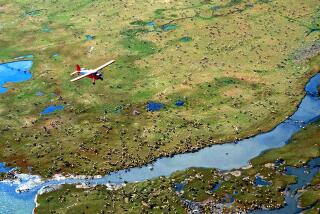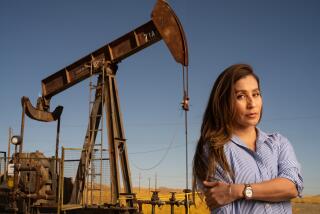‘Social Assets vs. Energy Future’
- Share via
Charles Krauthammer’s column, “Alaskan Issue Pits Soothing Social Assets Versus Energy Future,” (Op-Ed Page, Sept. 7) is a serious misrepresentation. He maintains that the only ecological objections to the development of oil in Alaska come from people who want to preserve cute and pretty little animals. This is not so. The caribou herds, which have been seriously impacted by Prudhoe Bay development, are essential to the subsistence of many Eskimo families who have suffered hardship recently.
Throughout Alaska, several thousand people still depend on hunting and fishing for a livelihood and they find their survival imperiled by development. Insofar as development can take place without destroying existing game and fish reserves, well and good; however, few except oil company executives maintain that this has been the case.
Krauthammer himself admits that conservation and other ways of achieving energy independence, have not been pushed lately. One could add wind power, solar power, relatively “clean” coal and nuclear power--all abandoned as research goals or even as considerations by the Reagan Administration.
It is also important to remember that oil is a nonrenewable resource, whereas wildlife and fish are renewable. Oil development in Alaska has even been proposed in the Bristol Bay area, through which several tens of millions of salmon run annually, as well as countless millions of other fish and sea mammals and crustaceans.
Oil development would certainly eliminate much of this life for the foreseeable future, and might wipe out the whole bay if, for example, an earthquake like the 1964 Alaska quake occurred and ruptured many wells at once. The value of a few years’ worth of oil is not even remotely comparable to the value of a potentially almost endless return of salmon and other fish.
E.N. ANDERSON
Riverside
More to Read
Sign up for Essential California
The most important California stories and recommendations in your inbox every morning.
You may occasionally receive promotional content from the Los Angeles Times.













